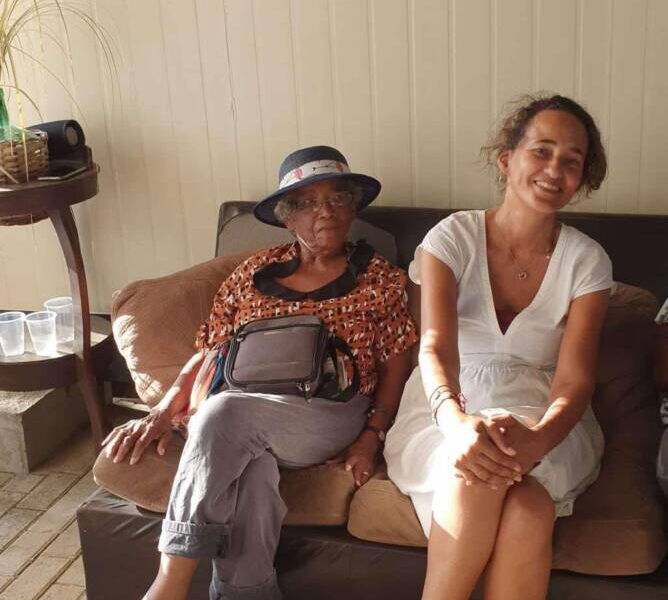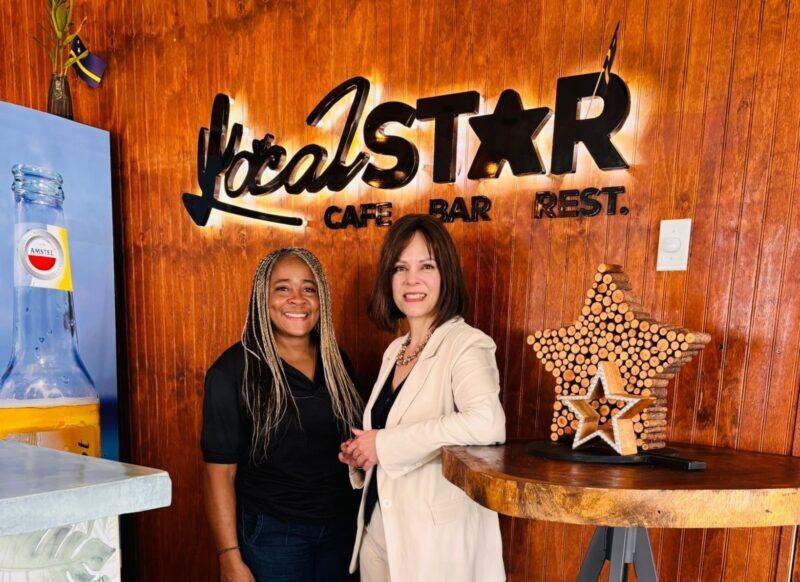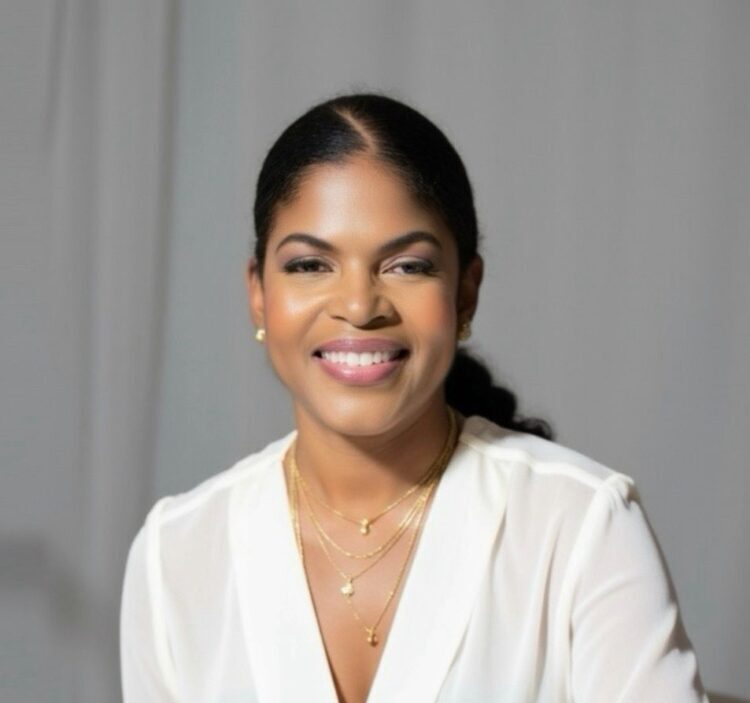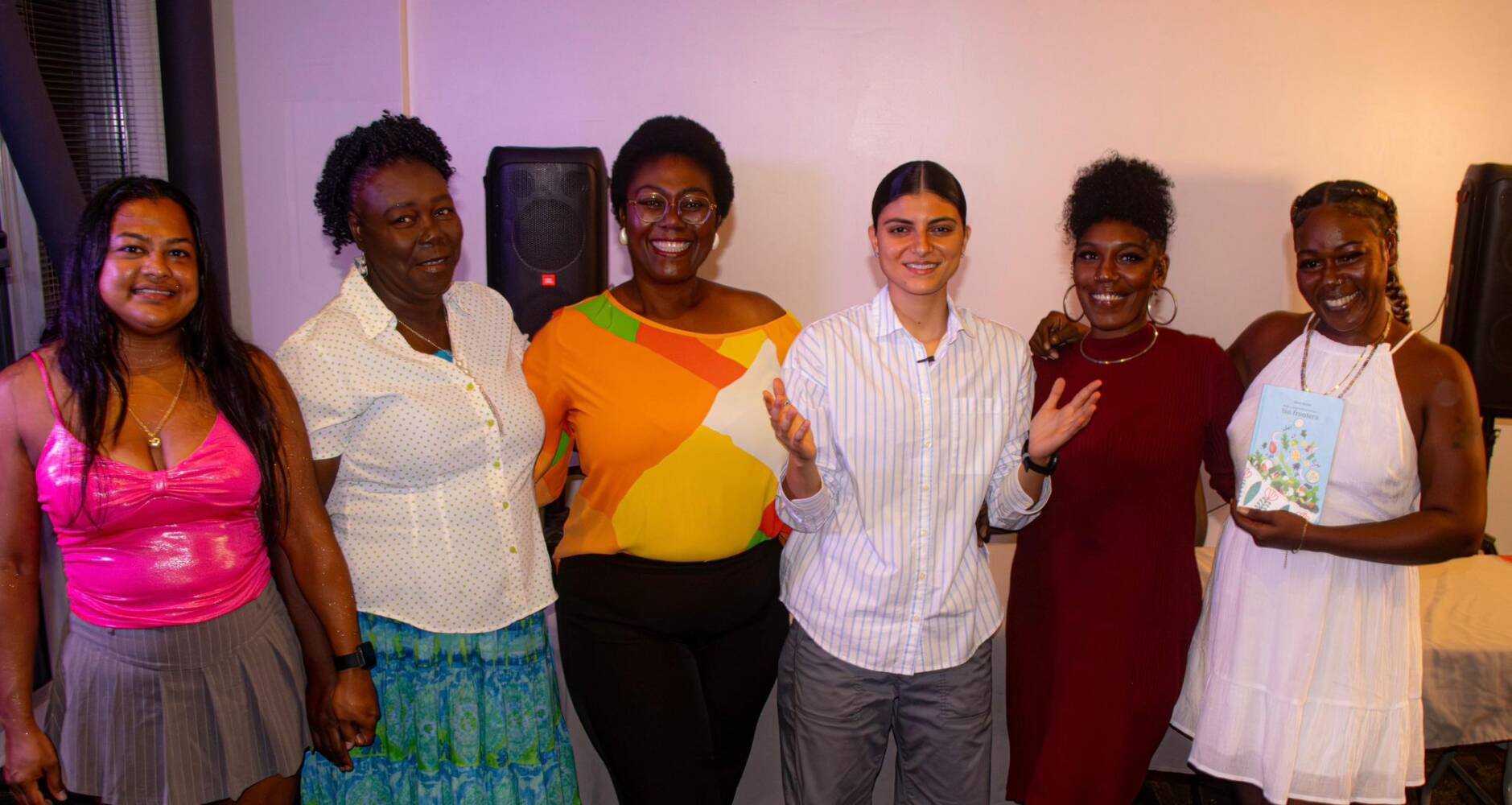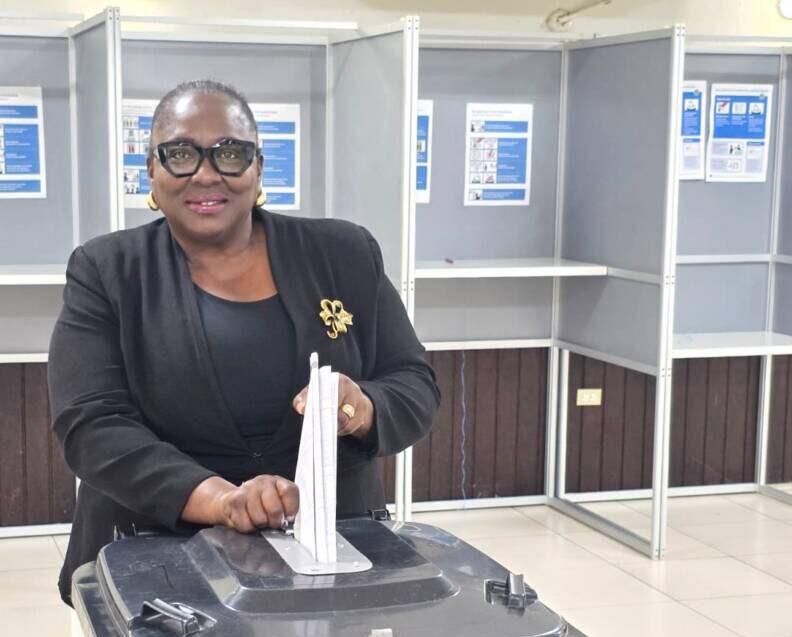Manon Meijer has lived and worked her entire life in the Netherlands. That changes when her mother, Silvia Marsera, born in Rincon, develops dementia. Meijer makes the life-altering decision to leave behind the life she knows and move to Bonaire with her mother. “People with dementia want to return to their island,” she explains. On her mother’s birthplace, Meijer faces the five hardest years of her life while giving her mother the best possible final years.
“After my father passed away, my mother began showing the first signs of dementia alongside her grief,” Meijer begins. At first, her mother moves into an assisted living apartment, where help is close by. But her mother’s condition worsens, and she starts reminiscing more frequently about her youth. Meijer decides to move to Bonaire with and for her mother. “The care in the Netherlands may be very good, but there’s nothing like growing old in a familiar environment.”
Right move
The journey to Bonaire is grueling; on the plane, her mother becomes completely unresponsive due to stress. “Great start,” Meijer thinks. But once they arrive at the family home in Kralendijk, it quickly becomes clear that they made the right move. “She felt so at ease there; it was really her home.” At that time, her mother was still mobile and talkative. “I talked to her a lot, gave her newspapers to read. I took her everywhere with me, but I could also leave her alone for a while without any problems.”
Two years later, Meijer returns briefly to the Netherlands – her first time away from her mother. She leaves her mother’s care in the hand of others. However, this reveals in the most dramatic way how crucial the personal attention is. “She suddenly deteriorated completely.” Her mother could no longer walk or speak. “The vacation feeling disappeared quickly.” After her return to Bonaire, her mother started to improve slowly again, but was never the same. Caring for her becomes increasingly demanding.
Channels
“There is help available, but it’s hard to find. You have to know about all sorts of channels. There isn’t a clear resource for caregivers that lists all the support options clearly, indicating where to get them. How is it possible that I only learned about the existence of a Caregiver Foundation after my mom passed away?” Meijer wonders.

Photo: Manon Meijer
“The last six months, I really couldn’t handle it anymore; it became so overwhelming,” she recalls. Meijer advises anyone who wants to become a caregiver to make a list in advance of people who can help when things get tough. “When you suddenly become a caregiver, you don’t know what you’re getting into—and maybe that’s a good thing. But once you’re in it, it’s too late to start looking for help. You’re just trying to survive.”
‘Call me’
Being far from home, Meijer didn’t have friends or family around to support her during her caregiving journey. “My mother’s sister was the only one who said, ‘Manon, you can always call me,’” she shares with gratitude. “That makes all the difference.”
Last year at Pentecost, the surviving ended when Meijer’s mother passed away. Only then could Meijer reflect on that period. “Caregiving changed me as a person,” she says full of conviction. “I now actively seek out positivity. I do things that make me happy and practice gratitude.” She feels incredibly strong, mentally. “Caregiving is the hardest job in the world. If you’ve survived that, you can handle anything.”
Stories, space, eco-resort
Today, Meijer uses her strength and experience to advocate for caregivers and support them. She is working on a book featuring stories of caregivers and has founded De Huiskamer (“The Living Room”), an online space for caregivers. Meijer believes recognition for caregivers’ work is especially important. “We do incredibly important work. If we weren’t here, what would happen? The people who need care would suffer, or they’d be much less happy in nursing homes. I think our society would become harder, harsher, and more difficult. Plus, we save the government a lot of money.”
Meijer now lives at the family home in the kunuku near Rincon. “I didn’t know what I was getting into, but luckily, I fit well with Bonaire. I love the tranquility.” She currently works in education, but her dream is to start an eco-resort for overworked caregivers on her property. “That way, they can take a break and, for a change, be the ones cared for.”




